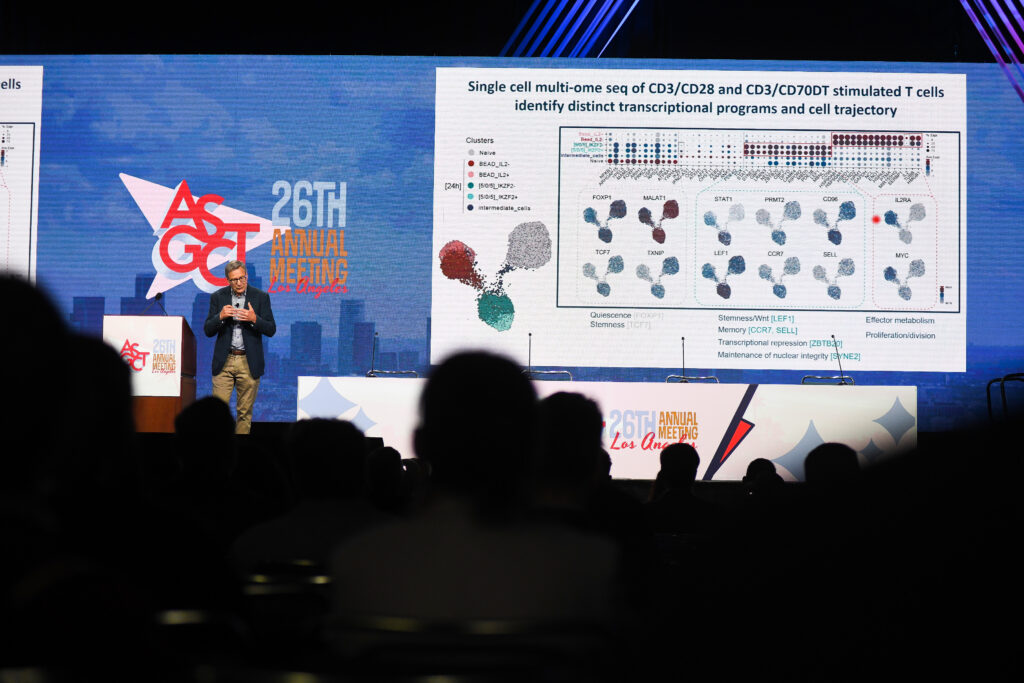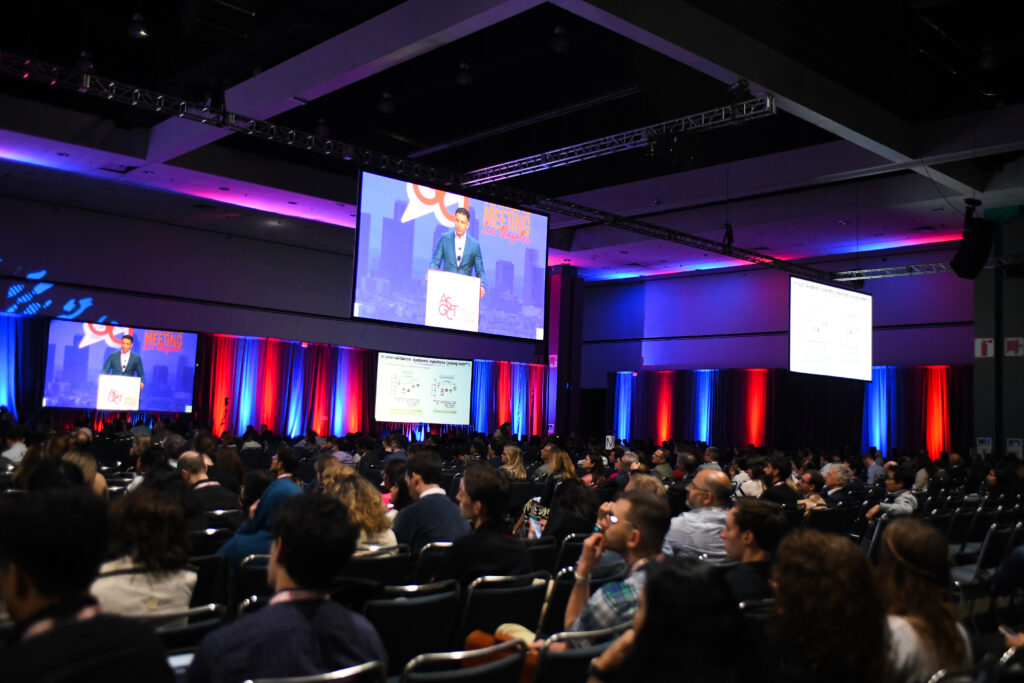The explosion of gene and cell therapies brings promise – and a plethora of questions – from patients and healthcare providers. CAR T-cell therapy is a notable example. These one-time treatments are providing durable remission and in some cases cures of recurrent blood cancers. Due to the complexity of CAR T-cell therapy, it is currently available exclusively at specialized medical centers. This means community hospitals and other healthcare providers aren’t privy to the firsthand experiences with these lifesaving treatments or the advances in mitigating side effects such as cytokine release syndrome.
There is an urgent need to educate providers across the healthcare ecosystem about these life-altering therapies. The dearth of understanding of these treatments can lead to devastating delays in care for patients with aggressive cancers. Prompt referrals are essential when pursuing this treatment. The process of determining patient eligibility and then consolidating and manufacturing cells can take many weeks, and that is if there is an available treatment slot – some centers have wait lists.
Grant Holley doesn’t mince words when he talks about the need for gene and cell therapy education. As Director of Science and Education for the American Society of Gene + Cell Therapy (ASGCT), Dr. Holley sees firsthand why educating professionals and the public at large is so crucial. “The need is dire,” he explains. “The knowledge gap is everywhere because change is happening so fast. We’re seeing advancement every day, which is wonderful, but it really does make it difficult for people to keep up. There are patients who are hurting and need help now. Hopefully, we can be a part of that for them.”
As the primary professional membership association for gene and cell therapy, ASGCT conducted a needs analysis and discovered there was an extremely high demand for knowledge among all stakeholders, including researchers, clinicians, patients, and families. “We need to educate researchers in order to grow capabilities in the industry,” says Dr. Holley. “In terms of need, clinicians are a close second, because they’re the ones prescribing cell therapies today.”
Growing education needs
With FDA approvals for cell and gene therapies to treat conditions like sickle cell disease and diabetes on the horizon, there will be an even greater need for provider education.
“These are conditions that impact hundreds of thousands of people, so it’s incredibly important that we’re able to communicate across various populations,” explains Holley. ” If people don’t understand how these work, there will be misinformation that impacts patients.” What’s more, educators need to not just share information but find ways to build trust, particularly with communities who have been underserved by the medical community in the past.”
The power of knowledge
Based on its needs assessment and work in the community, ASGCT is addressing the demand for gene and cell therapy education on numerous fronts:
- The ASGCT annual meeting attracts thousands of researchers looking to keep up on the rapid-fire changes in fields such as clustered regularly interspaced short palindromic repeats (CRISPR) and adeno-associated virus (AAV). This international forum is the go-to source where the latest therapy developments are presented and critically discussed.

- As the exclusive CME partner to ASGCT, PlatformQ Health supports the organization in the development of CME programs highlighting the latest advances in the field, helping to educate providers on topics such as:
Part of the content development process involves ASGCT’s Patient Education Team reviewing program scripts. This helps ensure that the educational content is presented in a way that prepares healthcare providers to have conversations with their patients about cell and gene therapies in layman’s terms.
- In addition, ASGCT and PlatformQ Health have developed microlearning videos presented by key opinion leaders. Geared for busy providers, these 2-4-minute sessions highlight gene and/or cell therapy in a particular disease state.
- ASGCT partners with patient advocacy groups such as the National Organization for Rare Disorders to share online education that is clear and accessible to patients and families. Its Patient Outreach Committee is focused on both ensuring scientific accuracy and health literacy.
Dr. Holley notes that when it comes to education, some of the most impactful information comes from patients themselves. “Researchers can help people understand how these therapies work, but when people hear from patients like themselves who have gone through these treatments and can share their experiences, that’s when they’re going to listen.”
- ASGCT has produced award-winning videos on the basics of gene therapy, explaining topics such as CAR T-cell therapy and CRISPR. To date, the videos have garnered more than one million views. Since the treatment landscape is changing so rapidly, the education team decided to create high-level educational videos that would remain relevant for a three-year period, and support those with Q&A materials that can be refreshed twice a year.
- To spark interest in science and to build trust in medicine and research, ASGCT initiated a program at local middle schools. Members of its education team visit classrooms in urban Milwaukee, having open conversations with students about issues like how they feel about doctors and what might interest them about science.What they discovered was striking. The fear of being misunderstood by doctors was palpable, and caused some families to forgo care. “They are not ready to talk with us about things like CAR T-cell therapy,” explains Dr. Holley. “We have to face realities and start to work to build trust. It’s basic educational psychology. This is not going to happen overnight, but we need to start taking the first steps.”One of those steps has been to bring much-needed support to local communities. Working alongside local fire departments, ASGCT funded CPR and first aid classes. These early efforts are already starting to help. The hope is that health advocacy organizations across the country will replicate the model in their own communities.
- Through monthly community education events, ASGCT provides a forum for researchers, patients, and patient advocates to meet and discuss topics such as clinical trials from a patient and from a clinician perspective. Bringing stakeholders together is essential for educating the populace and overcoming misconceptions about gene and cell therapy. Dr. Holley’s hope is that as these treatments evolve, health centers will invest in hiring people specialized in these treatments to work within their administration and serve as a resource hub for their physicians and researchers. “We need to start purposely looking for people with these backgrounds to serve as the source of truth for their organizations.”
What’s next
As researchers move at a lightning pace, educators like Dr. Holley are right there along with them. “When people hear about these types of treatments, it can sound like science fiction and fantasy, so there are definitely misconceptions out there. Part of our work is getting this information about modern science into the classroom and into the community.”
To learn more, visit PlatformQ Health’s ASGCT partnership page.

